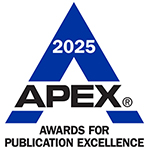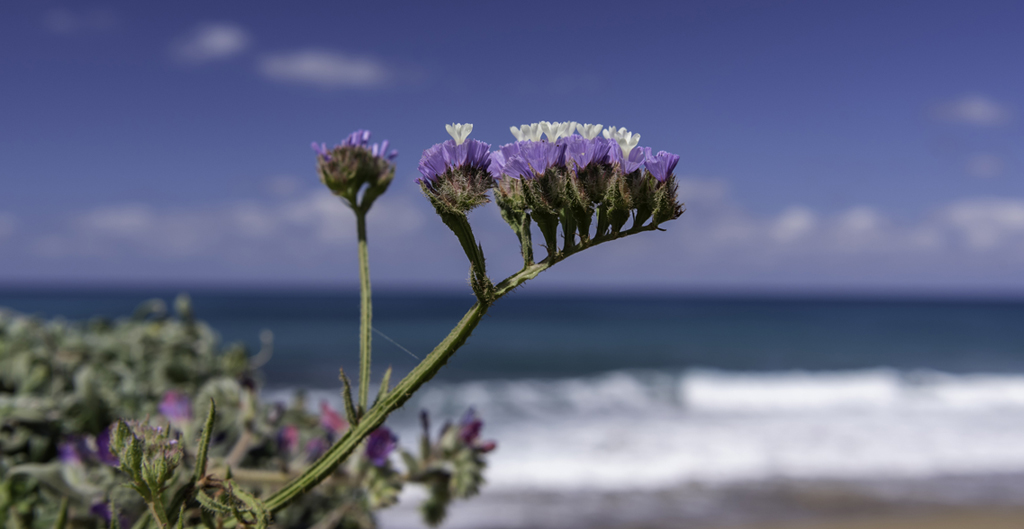
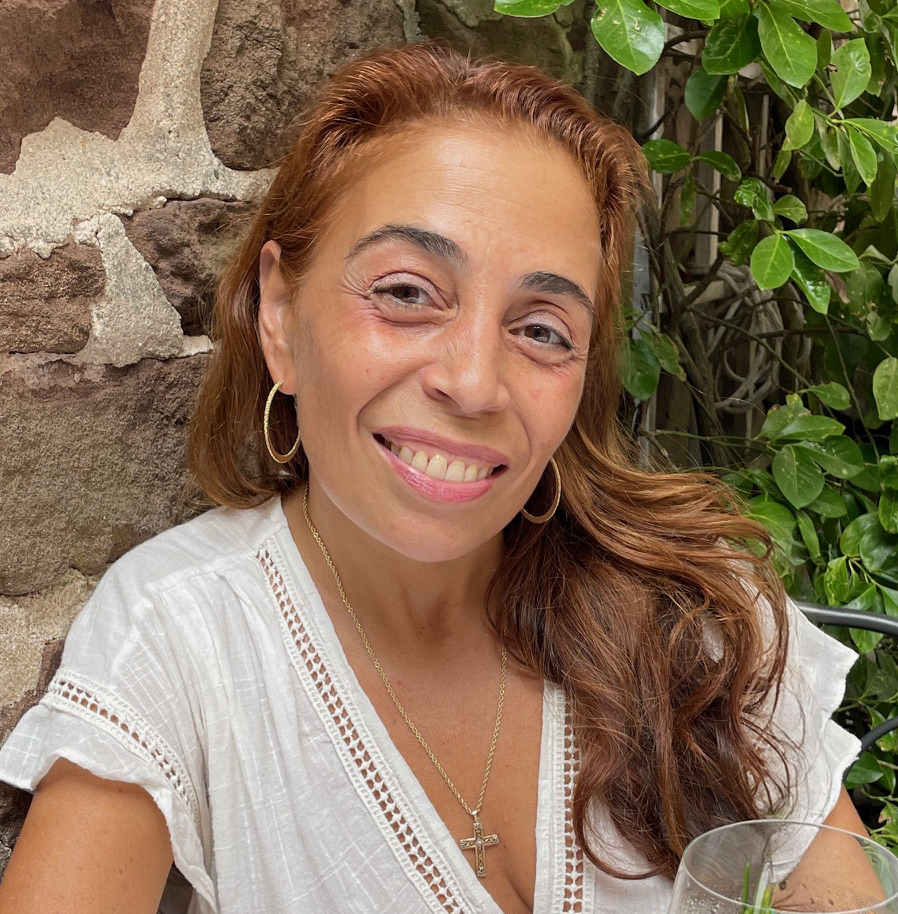 As a toddler, Maria Hadjidemetriou experienced incessant crying bouts, agitation, fatigue and a loss of appetite. Her symptoms and appearance—including jaundiced face, hollow eyes and pale skin—concerned her parents and prompted them to seek treatment. They received life-altering news when a pediatrician visited their village in Cyprus and informally diagnosed her with thalassemia.
As a toddler, Maria Hadjidemetriou experienced incessant crying bouts, agitation, fatigue and a loss of appetite. Her symptoms and appearance—including jaundiced face, hollow eyes and pale skin—concerned her parents and prompted them to seek treatment. They received life-altering news when a pediatrician visited their village in Cyprus and informally diagnosed her with thalassemia.
“My mother said the doctor took one look at me and told her I had ‘Mediterranean anemia,’ which is what they called thalassemia back then in Cyprus. Then he recommended an immediate transfusion,” she said. Hadjidemetriou and her family relocated to New York, where she received a formal diagnosis of Cooley’s anemia (beta-thalassemia) at New York Presbyterian before her third birthday.
Hadjidemetriou described her childhood as challenging. She suffered two organ failures by age 12 that resulted in the removal of her spleen and gall bladder. She also faced relentless teasing from classmates and significant stigma from her health care provider, placing additional strain on the daily management of her condition.
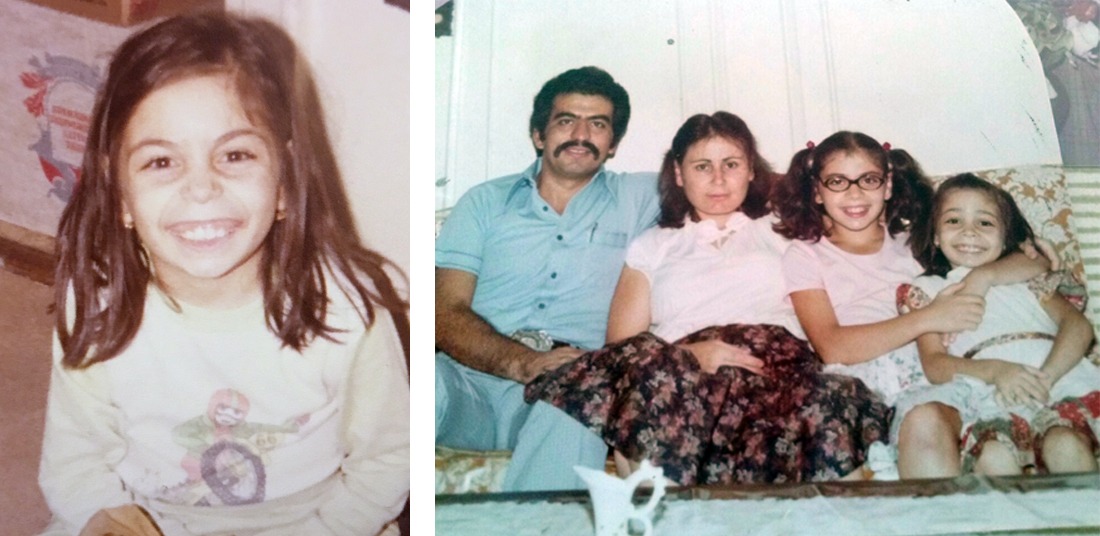
“From age 16 to 26, I was under the care of a hematologist who didn't listen to me and kept my hemoglobin levels too low. Then she gradually reduced the volume and frequency of my transfusions—which I was getting every two weeks—even though I kept telling her, ‘I’m in pain without blood; my heart and bones ache and I can’t function,’” Hadjidemetriou said. She added that she eventually developed extramedullary hematopoiesis and osteoporosis as a result of low hemoglobin levels.
“I had massive growths in my lower spine. It was debilitating. I couldn’t walk. I was in constant pain,” she said. “My doctor constantly reminded me of my disorder and discouraged me from dreaming. But I want to be treated differently. Inclusion means encouraging me to achieve just like everyone else.”
Later, Hadjidemetriou found a new hematologist who finally asked, “What hemoglobin level do you need to live well?”
“I told him above 11. And he said, ‘That’s what we’ll do.’ That one sentence changed my life,” Hadjidemetriou said.
As a child, Hadjidemetriou watched her mother educate their relatives and community about the disorder unabashedly. When a family friend once asked, “What is Maria going to amount to?”, she recalled her mother immediately silencing her negative remarks without hesitation. That moment taught her the importance of speaking up.
“I grew up in a different time—in the 1970s—when the disorder was known as ‘stigma’ in the Mediterranean culture, and it was something to hide,” Hadjidemetriou said. “But my mom, being a very traditional Greek mother, did not keep it to herself because she wasn’t ashamed of me. She talked openly about my condition to our community, my school and our church. That made a huge difference.”
Hadjidemetriou set out on a quest to learn more about her disorder so that she could educate her peers and others about thalassemia. At 16, she visited her local public library in Queens and read every medical publication she could find on thalassemia. However, what she discovered in the literature appalled her.
“Clinicians and hematologists described people with my condition as having ‘rodent-like features’ with growth retardation or mongoloid characteristics,” Hadjidemetriou said. “I was already self-conscious about my body and to see myself dehumanized like that in print broke me. I promised myself I’d rewrite the narrative someday.”
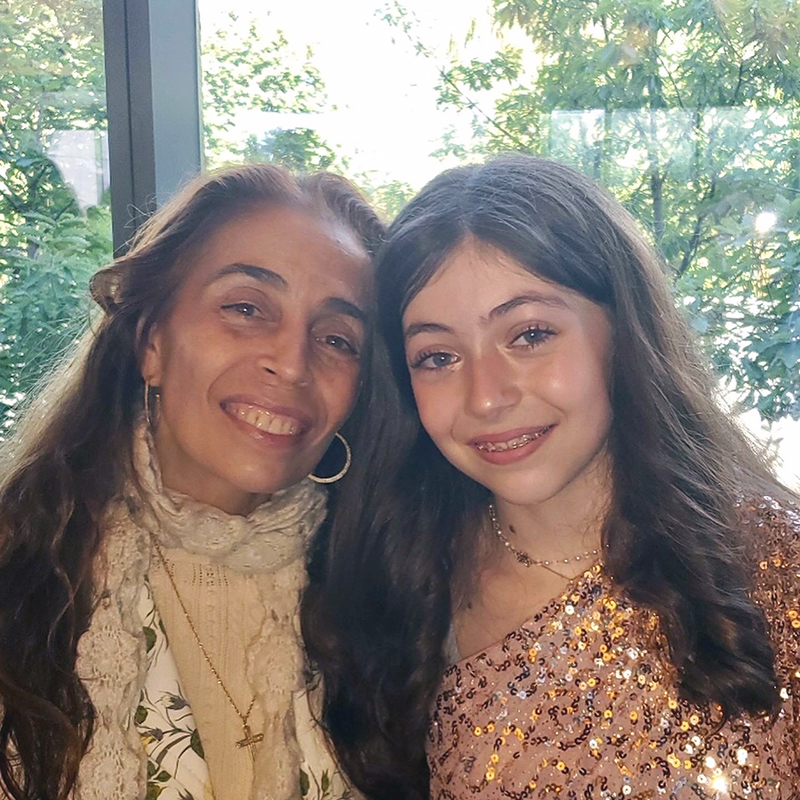
Years later, Hadjidemetriou, now 52, has published two articles in the American Journal of Hematology and wrote and produced a short award-winning documentary, Thalassemia: Life Without Boundaries, to raise awareness and spread a positive message about thalassemia to patients and parents. The film also features her daughter and captures her journey of motherhood—a dream doctors told her to abandon early on. Hadjidemetriou was able to conceive her daughter, Julia, naturally against all odds. Today, Julia is 16 years old.
“I was told so many times not to even think about motherhood and just focus on my condition,” she said. “I was tired of doctors looking at patients like me as just diseased people and not telling us to shoot for the stars. I worked with a director who believed in my vision of hope and empowerment, not darkness. We made a short documentary with a message that having a disease should not rob you of your dreams.”
During her speaking engagements, Hadjidemetriou encourages parents to be their child’s number one cheerleader and biggest advocate. “Don’t hide your child’s condition. That only hurts the child,” she pointed out. “Don’t let others define their future. Advocate for them. Celebrate them.”
At the age of 30, Hadjidemetriou found herself facing another health crisis when she started experiencing heart pain. Although several cardiac studies returned negative results, she couldn’t shake the feeling that something was seriously wrong.
“I knew it wasn’t anxiety. I flew to Cyprus in 2001 and had an MRI that confirmed I had cardiac iron overload and was near heart failure,” Hadjidemetriou said. “I started a treatment called Ferriprox. It wasn’t yet FDA-approved in the U.S., but it worked. Within 14 months, it cleared the iron and restored my heart’s function.”
Iron overload is a common complication for patients with thalassemia due to frequent blood transfusions. Today, Hadjidemetriou manages iron overload with two forms of chelation therapies: a subcutaneous infusion pump to remove excess iron from her liver and an oral iron chelator to reduce cardiac overload. She noted chelation therapy has improved her quality of life.
“I have a needle in my stomach right now that I have to wear for 13 hours, but I’ll never complain about sticking myself with a needle every night because I know people who don't get that chance,” she told AABB News. “I know how lucky I am. Patients in many countries often don’t have access to these treatments. I read their stories, and they broke my heart. This journey has taught me so much about gratitude.”
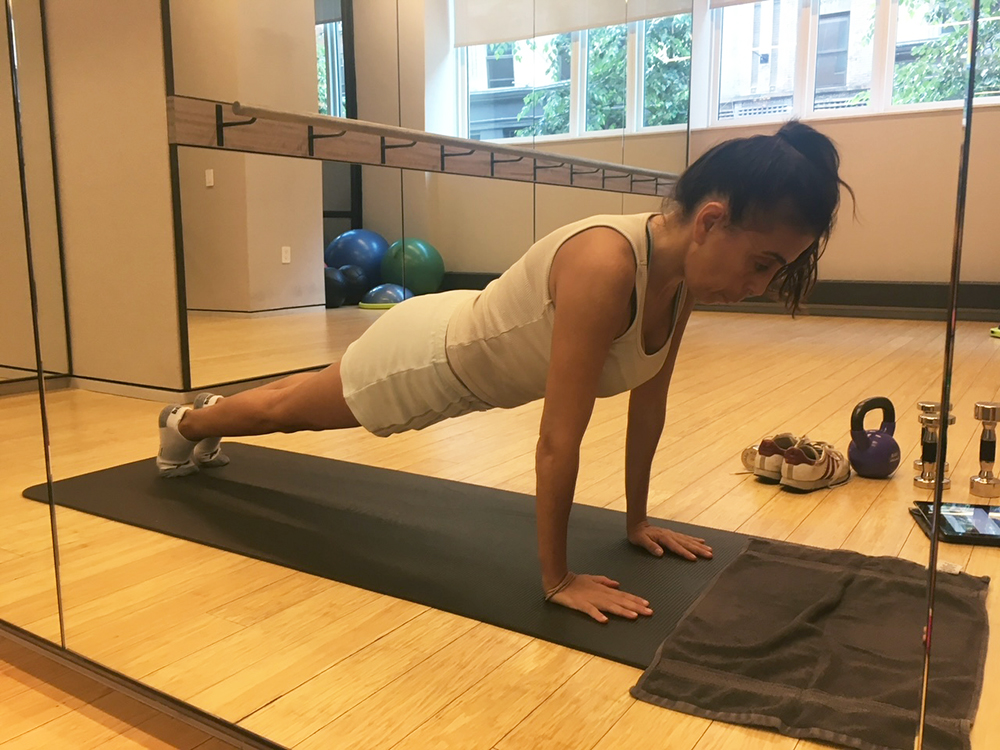
Since her diagnosis, Hadjidemetriou has received more than 2,500 pints of blood, and she continues to undergo blood transfusions every 14 days. She emphasized the life-saving impact of blood donation and expressed her gratitude to blood donors.
“Before the COVID-19 pandemic, I hosted many blood drives and gave talks for the New York Blood Center. I met a man named Leonard who had donated a total of 13 gallons of blood throughout his life. Without donors like Leonard, I wouldn’t be here,” Hadjidemetriou said. “It’s not just patients like me or those with sickle cell disease; it's also women in labor experiencing preeclampsia who may need 30 pints during childbirth. Imagine if there was no blood available. You can’t manufacture blood. There is no substitute. Blood donors are modern-day superheroes. They literally save lives.”
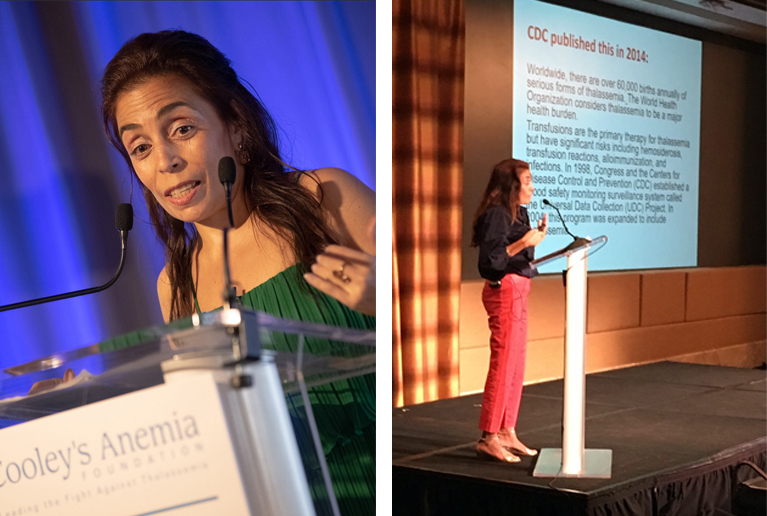
Hadjidemetriou, executive board member for the Cooley’s Anemia Foundation in the U.S., is deeply passionate about using her voice to drive change for patients with thalassemia within her community and beyond. She currently serves on the board of directors for the Thalassaemia International Federation, which is headquartered in Cyprus. As a global patient advocate, Hadjidemetriou shares her personal story with audiences at medical conferences on thalassemia, providing insight into the patient's experience. She uses her platform to advocate for equal treatment standards and consistent care for patients with thalassemia worldwide, particularly in underdeveloped countries.
“I want patients in other countries to have access to the same treatment options, including safe blood transfusions, chelation therapy and gene therapy. We need better access to comprehensive care everywhere—not just hematology, but cardiology, endocrinology, mental health and nutrition,” Hadjidemetriou said. “We also need more education for doctors, especially in rural or under-resourced areas and universal newborn screening, so children are diagnosed early. And most of all, we need to remove the stigma. Patients should never feel ashamed of their condition."
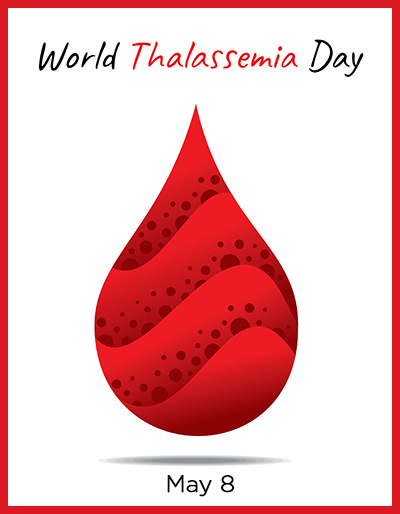 What does World Thalassemia Day mean to you?
What does World Thalassemia Day mean to you?
It’s a day to raise global awareness and push for policy change. Every country has its own challenges, but the more we talk, the more change we can bring.
In the U.S., we have something called the Care Walk, organized by the Cooley’s Anemia Foundation. It’s an accessible, inclusive event—just walking in your park with your community. It starts on May 8th on World Thalassemia Day. Some chapters host big events with food trucks, blood drives and children’s activities. Others are more intimate, just 10–15 people. It’s all about spreading awareness.
BACK TO ISSUE
May 2025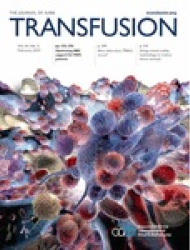
Transfusion is AABB’s scholarly, peer-reviewed monthly journal, publishing the latest on technological advances, clinical research and controversial issues related to transfusion medicine, blood banking, biotherapies and tissue transplantation. Access of Transfusion is free to all AABB members.
Learn More About Transfusion Journal
Keep abreast of what's happening in the field of biotherapies with CellSource - AABB's monthly update on the latest biotherapies news.
To submit news about the blood and biotherapies field to AABB, please email news@aabb.org.
President
Meghan Delaney, DO, MPH
Chief Executive Officer
Debra Ben Avram, FASAE, CAE
Chief Communications and Engagement Officer
Julia Zimmerman
Director of Marketing and Communications
Jay Lewis, MPH
Managing Editor
Kendra Y. Mims, MFA
Senior Communications Manager
Drew Case
AABB News
(ISSN 1523939X) is published monthly, except for the combined November/December issue for the members of AABB; 4550 Montgomery Avenue; Suite 700 North Tower; Bethesda, MD 20814.
AABB is an international, not-for-profit association representing individuals and institutions involved in transfusion medicine, cellular therapies and patient blood management. The association is committed to improving health by developing and delivering standards, accreditation and educational programs that focus on optimizing patient and donor care and safety.
+1.301.907.6977
Email: news@aabb.org
Website: www.aabb.org
Copyright 2025 by AABB.
Views and opinions expressed in AABB News are not necessarily endorsed by AABB unless expressly stated.
Notice to Copiers: Reproduction in whole or part is strictly prohibited unless written permission has been granted by the publisher. AABB members need not obtain prior permission if proper credit is given.
